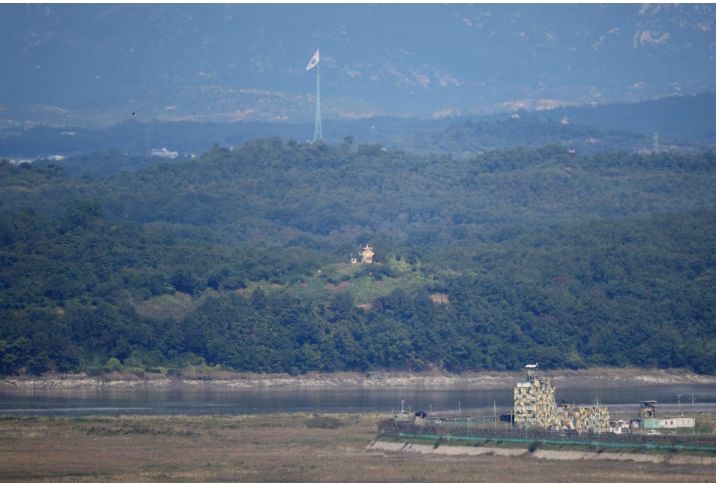Russia’s recent decision to veto the annual renewal of the panel of experts tasked with monitoring United Nations sanctions against North Korea has sparked concerns among international observers.
The move, supported by China’s abstention, signifies a significant setback in the enforcement of sanctions aimed at curbing North Korea’s nuclear weapons and ballistic missile programs.
Former members of the panel have voiced apprehension about the implications of Russia’s veto, highlighting the potential challenges ahead for the sanctions regime targeting North Korea. Aaron Arnold, a former panel member and sanctions expert, expressed worry over Russia’s blatant violations of sanctions through its alleged arms purchases from North Korea. Arnold stated that Russia’s actions, coupled with China’s tacit support, paint a troubling picture for the future of DPRK sanctions enforcement.
The dissolution of the panel, which has operated for the past 15 years, has drawn criticism from various quarters. Russia’s UN Ambassador criticized the panel’s work, alleging bias and poor quality analysis. However, critics argue that the panel’s effectiveness was undermined by the obstruction of unfavorable findings by Chinese and Russian members.
Diplomatic sources suggest that the veto may signal a diplomatic victory for Pyongyang, further solidifying its ties with Moscow. Recent developments, including alleged arms shipments and military cooperation, have heightened concerns about sanctions enforcement.
Despite the setback, efforts to monitor sanctions violations are expected to persist. Leif-Eric Easley, a professor at Ewha University, anticipates increased trilateral cooperation between the United States, South Korea, and Japan. Additionally, Hugh Griffiths, a former head of the panel, believes that alternative reporting mechanisms will emerge to address sanctions evasion.
The veto highlights the deepening relationship between Russia and North Korea, with experts warning of intensified cooperation in missile development and embargo-busting activities. Jenny Town of 38 North emphasizes the need for states to take on a greater burden in monitoring sanctions enforcement, given the limitations at the UN Security Council level.
In response to the veto, the United States and South Korea have launched a new task force aimed at preventing North Korea from procuring illicit oil, particularly from Russia. Additionally, unilateral sanctions have been imposed on individuals and entities in Russia, China, and the United Arab Emirates accused of funding Pyongyang’s weapons programs.
While visible sanctions enforcement has primarily been led by the United States and its allies, incidents such as Canada’s accusations of Chinese harassment highlight ongoing challenges in enforcing sanctions against North Korea.
South Korea’s Unification Ministry has described the veto as “extremely regrettable,” emphasizing the importance of international cooperation in addressing the North Korean threat.



